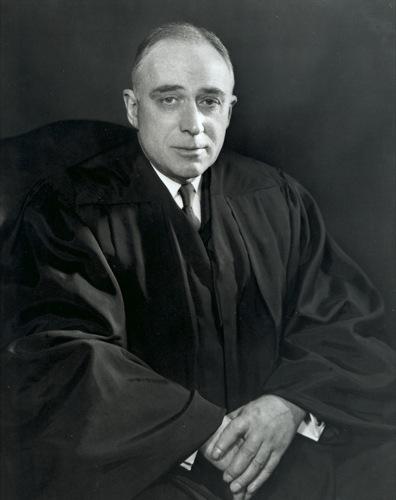Supreme Court Justices Shouldn't Attend State Of The Union Addresses
Six justices of the Supreme Court say haplessly as President Biden excoriated them over the Roe v. Wade decision.

I served as a law clerk for Justice John Marshall Harlan in 1961-62. John F. Kennedy was scheduled to deliver his first State of the Union address on Jan. 11, 1962. Harlan informed his clerks he wasn’t attending because he thought it violated the separation of powers for a Supreme Court justice to participate in a task that the Constitution assigned to the executive and legislative branches.
I had enormous respect for Justice Harlan but thought he was taking formalism too far. What was the harm if a justice appeared at this demonstration of national unity? Last week President Biden conclusively proved Harlan right by scolding and threatening the six sitting justices who chose to attend the event.
Article II of the Constitution enumerates the duties of the president. Section 3 begins: “He shall from time to time give to the Congress Information of the state of the union, and recommend to their consideration such measures as he shall judge necessary and expedient.”
The words “to the Congress” are extraneous if the purpose of this report is purely informational. Only if the provision contemplates collaboration between the president and lawmakers are these words meaningful. This reading deliberately excludes the judiciary from the process of delivering or receiving information on the State of the Union.
It would surely be improper for a justice to speak in support of or in opposition to proposed legislation at a session of the Senate or House. Nor would any justice attend a publicized meeting of the president and his cabinet to discuss national or foreign policy. Justices Felix Frankfurter and Abe Fortas took pains to keep secret any advice they privately gave to Presidents Franklin D. Roosevelt and Lyndon B. Johnson.
Justices Antonin Scalia, Clarence Thomas and Samuel Alito all stopped attending State of the Union addresses. This year Justice Amy Coney Barrett sat the event out. The six who attended (wearing their judicial robes) sat awkwardly with hands folded as Mr. Biden excoriated them for overturning Roe v. Wade and vowed to nullify the decision if voters choose his political party. In singularly demeaning style, the president taunted the court with hoist-on-your-own-petard language from Justice Alito’s majority opinion.
In 1962 Kennedy had the good sense and respect not to address legal controversies that were before the high court. The justices had heard oral argument in October 1961 on legislative reapportionment, and the Kennedy administration had taken a controversial position (which resulted in the landmark ruling of Baker v. Carr). Civil-rights sit-in cases were before the court, as were major antitrust and religious-liberty disputes. The Kennedy administration had legal positions on these issues, which it expressed in pleadings filed in court.
In 1962 it was beyond anyone’s imagination that the president would reprimand the court in a State of the Union address. Harlan chose to stay away anyway. All the court’s current members should follow his example.
Nathan Lewin is a Washington lawyer with a Supreme Court practice.